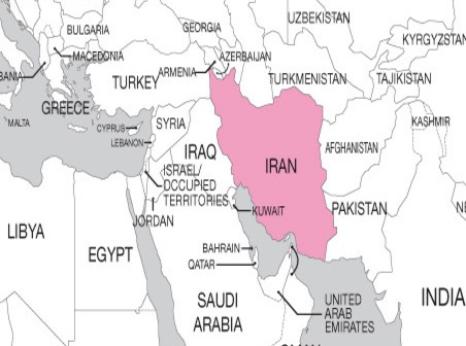Iran: 14 People Sentenced To Death In Relation To Protests

The trials of individuals for capital offences in connection with the nationwide protests have borne no resemblance to meaningful judicial proceedings. The authorities have relied on torture-tainted “confessions” and other evidence obtained in violation of international law and standards to issue indictments and convictions. They have barred defendants from accessing lawyers during the investigation phase, and have also barred independently appointed lawyers from representing clients at trial and accessing their casefiles. The right to the presumption of innocence has been repeatedly violated with state media airing forced “confessions” of several individuals prior to their trials. The authorities have fast-tracked capital cases, with some individuals convicted days after their trials began. At least seven people have been sentenced to death for offences such as vandalism, assault and arson in violation of international law which prohibits the use of the death penalty for offences that do not involve intentional killing.
Amnesty International has documented the torture and other ill-treatment of 10 of the aforementioned individuals to extract forced “confessions”. They are: Hamid Ghare-Hasanlou, Mohammad Ghobadlou, Sahand Nourmohammad-Zadeh, Shoeib Mir Baluchzehi Rigi, Ebrahim Narouie, Mansour Dahmardeh, Kambiz Kharout, Javad Rouhi, Mehdi Mohammadifard and Arshia Takdastan. Reported torture methods include beatings, electric shocks, flogging, rape and other forms of sexual violence, prolonged solitary confinement, death threats and exposure to extreme cold. Informed sources told Amnesty International that Arshia Takdastan, Mehdi Mohammadifard and Javad Rouhi, who were sentenced to death in December 2022, were subjected to gruesome torture and other ill-treatment. Mehdi Mohammadifard was beaten, hung upside down, and raped which resulted in him requiring hospitalization for anal injuries and rectal bleeding. Arshia Takdastan was subjected to beatings and death threats at gunpoint, resulting in a broken toe and memory loss. Javad Rouhi was subjected to beatings and floggings while tied to a pole, given electric shocks, exposed to freezing temperatures, threatened with death at gunpoint, and sexually assaulted by having ice put on his testicles for two days. As a result of this torture, he suffered shoulder and muscular injuries, urinary incontinence, digestive complications, mobility and speech impairment, and experiences severe pain in his back and hips and numbness in his right leg. Informed sources told Amnesty international that the authorities repeatedly tortured Hamid Ghare-Hasanlou, who is currently awaiting retrial on capital charges, leading to his hospitalization with broken ribs, difficulty breathing and internal bleeding in his lung for which he required three surgeries. During his initial trial in December 2022, Hamid Ghare-Hasanlou showed the judge his torture injuries, but no investigation into his allegations has been carried out. An informed source told Amnesty International that the authorities repeatedly beat Mohammad Ghobadlou, whose conviction for “corruption on earth” and death sentence was upheld by the Supreme Court in December 2022, and withheld his bipolar medication. A forensic report confirms that while in custody, he sustained bruising and injuries.
To date, the authorities have arbitrarily executed four people in connection with the protests after grossly unfair trials marred by torture allegations. Since the beginning of the popular uprising in September 2022, the authorities have arrested and indicted thousands of people, raising concerns about the imposition of the death penalty on more individuals. In addition to the aforementioned individuals, Amnesty International has confirmed the names of nine others – Toomaj Salehi, Farzad (Farzin) Tahazadeh, Farhad Tahazadeh, Karwan Shahiparvaneh, Reza Eslamdoost, Taher (Hajar) Hamidi, Shahram Marouf-Moula, Pouria Javaheri and Heshmatollah Tabarzad – who are in detention and are accused of or charged with capital offences, while other organizations have reported dozens more. Two of them are accused of capital charges in connection with peaceful acts protected under international law. Political activist Heshmatollah Tabarzadi is facing 20 charges including “corruption on earth” (efsad-e fel arz) in relation to his peaceful activism and criticism of the authorities’ response to protests in media interviews. Rapper Toomaj Salehi is accused of charges including “corruption on earth” (efsad-e fel arz) stemming solely from his critical music and social media posts denouncing the authorities’ unjust practices and calling for freedom and human rights for people in Iran. Informed sources have told Amnesty International that at least six of the nine individuals – Toomaj Salehi, Farhad Tahazadeh, Karwan Shahiparvaneh, Reza Eslamdoust, Shahram Marouf-Moula and Heshmatollah Tabarzadi – have been subjected to torture and other ill-treatment.